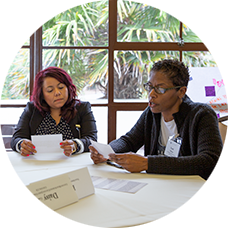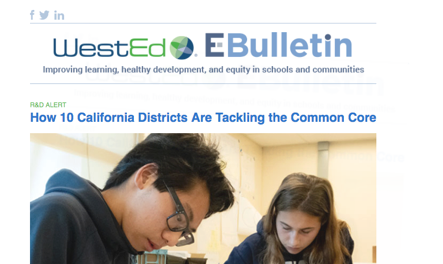Bridging Academic Pathways to Career Pathways

Education is a vital pathway for economic mobility and career advancement. Our work addresses equity gaps and helps ensure all students obtain postsecondary training, certificates, and degrees that translate to successful careers with income stability and meaningful growth.
In particular, community colleges are a pivotal access point to postsecondary education and serve as an engine of economic mobility. While diversity of students is a strength of many community colleges, the immense variety of course offerings can result in complexity and a lack of clear direction for underserved students and communities.
As part of our strategic approach to improving college and higher education systems, we provide expertise and guidance to help leaders:
- Create pathways between academic disciplines and living wage employment
- Collaborate on skill development and credential opportunities
- Increase occupational relevancy of academic pathways and disciplines
- Strengthen systems to better serve all students, including those who identify as Black, Indigenous and people of color (BIPOC) and who are first-generation and/or experience poverty.
Drawing from decades of expertise, we provide comprehensive services that include research and analysis, data-driven tools and technical assistance, and facilitation.
WestEd has developed a set of tools that look at the connections between education and work and can help regions prepare to apply for the California K-16 Education Collaborative funding. These resources can also help educators in other states learn more about how academic pathways align with jobs and the role of demographics in those pathways.
California Occupations by Bachelor’s Degree
This Tableau-based tool allows you to see the most common jobs for specific majors and the majors most associated with particular jobs. The information can be separated by region and timeframe after graduation. The dashboard also includes earnings and levels of education attainment.
Opportunity Maps
View simple visualizations that show the relationship between community college educational pathways, skills, and jobs, using region-specific labor market data. These resources use California-specific examples and data but are relevant in multiple reform contexts.
California Community College Completions by Program of Study
This Tableau-based tool clarifies the most common disciplines in which students earn degrees and certificates, and the demographics of those completers.
Advancing Equity Through Guided Pathways
Guided Pathways is a comprehensive reform approach that helps community colleges improve equity by redesigning programs and support services. One of the key aspects of Guided Pathways is grouping similar programs together to create academic and career communities that help students explore potential pathways, forge connections with peers and mentors, and practice skills that support both career and life goals.
These “metamajors” can also be designed to address historic inequities in students’ access to these pathways and the barriers that might derail them along their journey.
We offer a series of free resources to support educators and leaders in the development of metamajors, along with corresponding classroom strategies and student supports, in ways that correct inequities and improve student outcomes.


